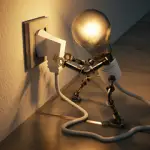
If in your search for a new home you’ve come across one with no central heating, you may be asking; “should I buy a house with no central heating“. Did you know that according to the Teachers Building Society, installing a central heating system can add an average of 5.8% onto the price of a home.
So should you buy a house with no central heating? It’s okay to buy a house with no central heating if the price of the property reflects this fact compared to similar properties nearby. But before you buy, make sure you can afford to have a central heating system installed by getting quotes. Also check if the property is supplied by mains gas too.
It is generally accepted that no central heating system in a house is undesirable. So let’s take a closer look at why you might want to buy a house without central heating.
Please also read this article to discover how you could save £71,475 on your next mortgage if you sell your house and rent before buying again. Even I was amazed when I did the calculations!
What is it like living without central heating?

There are four aspects to consider if you’re thinking about buying a house and living without central heating. These are:
- Your sensitivity to the cold. If you are less sensitive to the cold then you may be okay without central heating. But if you like your creature comforts, you won’t like a house without the convenience and warmth of central heating.
- The fabric of the house and problems with damp. Houses without a good heating system can and will get damp. This isn’t good for your health, especially if you suffer from asthma. You also have to consider the possibility of freezing pipes in the winter in a house without a good heating system. You may want to take a quick read of this article about whether you should buy a house with damp. The article also includes a section on whether you can get a mortgage on a hour with damp too.
- Alternative heating systems. If the house has an alternative heating system to central heating, you may be okay. But central heating is one of the best ways to heat a house efficiently.
- Type of property. Whether the property is detach, semi-detached or mid-terraced will make a difference. For example a mid-terraced house has a house either side which will help to prevent heat loss. Whereas a semi-detached has an extra wall exposed to the outside, and a detached house has two extra external walls. This can make a difference to heat loss and to the heating of a house.
- Resalability of the house. As mentioned above, a central heating system adds nearly 6% to the value of a house. But on the converse, that means a house with no central heating will be worth nearly 6% less too. Houses with no central heating are less desirable than house that have it installed.
The next question you may be asking is; can you get a mortgage on a house with no central heating?
Can you get a mortgage on a house with no central heating?
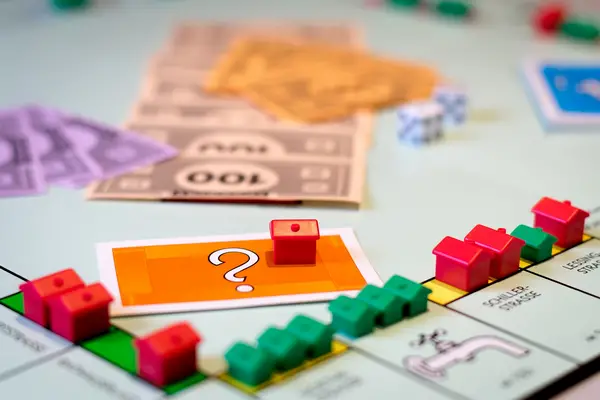
You can get a mortgage on a house with no central heating. But this will depend on the lender you choose and the overall state of the property. Some lenders will be concerned if the property has no heating at all. But if the property has an alternative heating system, a mortgage shouldn’t be a problem.
The reason for not having central heating in the house may be because the boiler is missing or has failed. If this is the case, may get some lenders who will lend, as this is a simple fix. The lender will rely on the report from the surveyor to decide whether or not to lend.
But this is another good reason why you should use a mortgage broker to find your lending to buy a house. They will know which lenders are okay to lend on the property you are buying. Plus whether they will lend if it doesn’t have central heating.
What does it cost to install central heating in a house?
The average cost to install a complete central heating system in a two storey, three bedroom house, is between £3,250-£4,250. This cost will include a new boiler, up to nine radiators, a water tank, pipework and sundry parts.
The cost of the central heating install will change if you have a larger house and may alter in different parts of the country where labour rates change.
Another factor that will affect this cost is whether you prefer to have the heating pipes hidden. Most heating pipes need to be dropped down a wall. The cheap way to achieve this is to drop them down on the outside of a wall. But the more expensive option is to run them on the inside of the wall. If you want a cleaner look and hidden pipes, this will cost more.
It’s important to note that you will need to find out which type of central heating system can be installed (see below). I suggest you look into this before you buy a house with no central heating. Plus get quotes for installation.
You are best to get at least two separate quotes, but preferably three quotes. Don’t always go for the cheapest option. Where possible get a recommendation. And try to use services like Checkatrade or similar to find a good reputable company.
The benefit of installing your own new central heating system is get to choose the size, location and the look of the system. Plus you can get one of the latest energy efficient boilers installed too.
Consider home insulation when having a central heating system installed
When you have central heating installed, make sure you don’t neglect the home insulation. You may even be able to get a government grant for this. You may also get a grant on the boiler install as well.
If the walls of the house are not well insulated, consider cavity wall insulation. But if the house doesn’t have cavities, consider having the walls lined for insulation at the same time as hiding the heating pipes.
What are the types of central heating system?
- Mains gas central heating system. This is the most common type of central heating there is. But it does rely on having mains gas to the property or in the street. Check if the road where the house is located has mains gas to confirm this type of central heating system is possible.
- Electric central heating. Electric boilers are becoming more common, as they are seen as a greener option and friendlier to the planet. Boilers run on electric are often more compact, more efficient and cheaper to install than gas boiler systems. But according to SSE, the cost of running an electric boiler is typically threes times more than a gas boiler. These running costs can be reduced by installing solar panels on your house.
- Oil fired central heating systems. Oil fired boilers are more expensive to install than gas fired boiler systems. But these tend to be cheaper to run than an electric boiler and they are a good alternative if the house doesn’t have gas to the property. The downside is you have to have deliveries of oil at regular intervals in the year.
- LPG or bottled gas boiler systems. Bottled gas or LPG central heating is more expensive than mains gas. A similar downside to oil fired central heating is the LPG has to be delivered.
How long does it take to install central heating?
To install a completely new central heating system will take between two to five days with two heating engineers working on the job. But this time scale may be longer if the house is habited during the install, as the engineers will have to work around you.
The central heating system may take longer to install if carpets and floor boards need to be lifted for laying pipework and to install the radiators.
If you are buying a house with no central heating, it would be far better if you could delay moving in until the installation is complete.
The best way to speed up the installation of a central heating system
The best way to speed up the installation of your new heating system is to not be in the house during the install.
One way to achieve this is to get a key undertaking between exchange of contracts and completion. A key undertaking is written into the contract to allow the buyer to undertake certain agreed works to the property between the day of exchange and the day of completion.
By having a key undertaking you won’t have to find an alternative place to stay, and the house will have central heating when you move in. But make sure you allow enough time between exchange and completion. You might like to take a quick read of this article about the maximum time between exchange and completion.
The alternative option to this is to sell your house and rent before buying again. That way you can continue to rent for an extra week or so until the central heating is installed. However, if you are a first time buyer and you’re either renting or living at home with your parents, you simply delay moving in after completion day.
For more on the first option, you may like to take a quick read of this article are you better selling your house and renting before buying again. Pay particular attention to the 15 advantages of this strategy, but bear the 10 disadvantages in mind too.
How much should the price of a house be reduce if it doesn’t have a central heating system?
If a house doesn’t have central heating, your offer should be reduce by more than the cost of installing the central heating system.
On the basis that a central heating system adds on average 5.8% to the value of a house. You should deduct at least this percentage off your offer below that of other similar houses in the same location.
Can you afford the cost of the installation of the central heating system?

The price of the house should reflect the fact it doesn’t have a central heating system. But if it doesn’t and the vendor offers to reduce the price for the cost of its installation, be sure you can afford this.
An example of costs associated with installing central heating
For example, if the house you are looking to buy that doesn’t have central heating is priced at say £200,000. Let’s say you’ve had a quote to install a mains gas central heating system for £4,000. For this you checked there is mains gas to the property. Also assume your mortgage is going to be 75% of the price you pay.
If you buy this property for £200,000, your deposit would be £50,000 (i.e. £200,000 x 25% = £50,000). Assuming you only have £50,000 saved for the deposit, in addition to buying costs and Stamp Duty.
On the assumption the vendor agreed to reduce the price by the cost of install, i.e. £4,000. You would still require £49,000 (i.e. £200,000 – £4,000 = £196,000 x 25% = £49,000). Which means you only have £1,000 spare to install central heating. Which leaves you short by £3,000.
Therefore, in order for you to afford this house purchase, the price reduction needs to be £16,000. Which is 8% off the purchase price. This would make your new offer £184,000 with a deposit at 25% of £46,000.
This would leave you with the £4,000 required for the central heating to be installed. With this level of discount off the list price in mind, you may like to take a read of this article on how to make an offer on a house below asking price. In the article I also discuss how much should you offer below asking price. But you should read point 8, which is key to getting a bargain price on a house.
But then you may also like to read this article; what % is a cheeky offer on a house too. In this article I address when is a cheeky offer rude or disrespectful.
What are the alternatives to heating a house with no central heating?
I’ve not lived in a house that had no alternative heating source at all. But then I’m not sure if any house is in this position. Most houses that don’t have central heating will at least have a fire place.
If you decide to buy a house without central heating and you have to move in before a new system is installed, you would be far better to do this in the spring or summer. At least this gives you time to install the central heating system before the winter arrives.
If you are able to move out whilst its being installed that would be ideal. As already mentioned, the install will take longer if you’re in the house when its being done, as the heating engineers will have to work around you. But also, there will be a lot of mess and dust to contend with if you living there.
But there are a number of alternatives to heating a house with no central heating.
Alternatives to heating a house with no central heating include the following:
- Night storage heaters.
- Open fire place.
- Log burning stove.
- Ground source heating.
- Air source heating.
- Aga.
Let’s take a look at each of these in more detail.
1. Are night storage heaters a good alternative to heat a house with no central heating?
Night storage heaters are not a good alternative for a house with no central heating system. Storage heaters are inefficient and expensive to run. The worst time to have storage heaters is at the start and end of winter when they are simply not workable.
At the start of winter you can get caught out. This happens when there’s a sudden cold snap and you’ve not yet put the heating on.
At the end of winter the reverse can happen. You can end up with heat stored to warm your house on a warm early spring day when its not required. The result is you have to open the windows to cool down.
Also, the heat is stored over night, so the heaters are warm in the morning. But by the evening, the heat has been lost so you will need an alternative heat source to keep warm.
I’ve lived in a house that didn’t have central heating. It had electric storage heaters. Never again, as I think electric storage heaters are the most inefficient and are the worst type of heating ever invented.
2. Is an open fire place a good alternative to not having a central heating system?
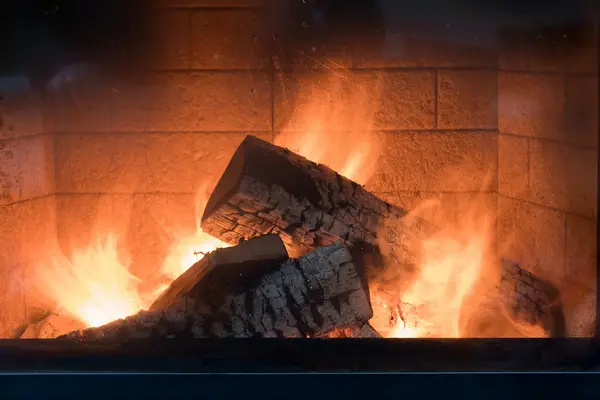
If the only source of heating in a house is an open fire, this is no substitute for a central heating system.
During the winter months the house will be freezing when the fire is not lit. But also, whilst a log fire is cosy and will heat the room when the fire is blazing, this will only be when the fire is lit.
On a cold winter’s morning when the log fire isn’t burning, this is when you’ll feel the cold. You’ll feel it most when you have to get out from under your duvet to have a shower in a cold bathroom. No thank you.
3. Is a log burning stove an adequate heating source for a house with no central heating?
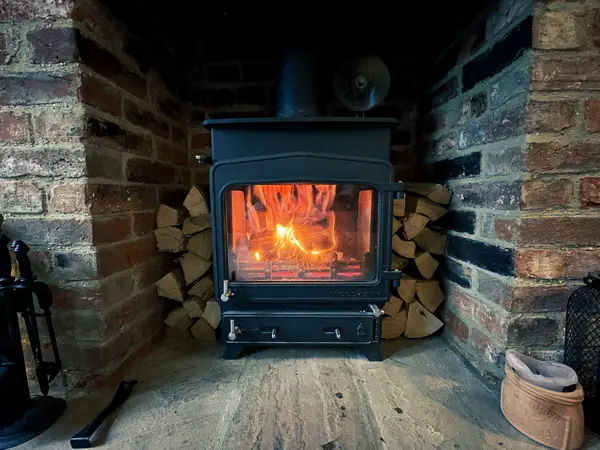
A wood burning stove is best used as an alternative heating source. This is to supplement another heating system, like central heating.
We have a lovely wood burning stove and it’s great in the winter. But I wouldn’t be without our gas central heating as well. When the log burner is lit the heat it pushes out is enough to warm most of our house. Which is a large house.
A wood burning stove is far more efficient that the open fire place we had before. With a log burner you get more heat output for the amount of logs burnt. Plus we don’t lose heat up the chimney like we did before.
But the trouble is, the stove won’t last until the morning using only logs. Which is why having central heating is a must for me.
The other thing about wood burning stoves is the cost of the fuel. We are fortunate, as we own a wood which supplies us with all the wood we need. But if we didn’t we’d be buying a lot of wood and this isn’t cheap.
If you decide to install a wood burning stove, it’s recommended to opt for a multifuel type. You can put other types of fuel in addition to logs in a multifuel stove.
For logs you will need somewhere to store them. And if you have them delivered unseasoned, you to store them outside until they are seasoned. Try to make friends with any local tree-surgeons or arboriculturists, as you may be lucky to get some cheap wood deliveries.
4. A ground source heating system is a good alternative for a house with no central heating
A ground source heating system is a cheap way to heat a house. But you need a large area of ground to bury the system underground in your garden. Plus the cost of install is expensive too.
A ground source heating system gets the heat from underground, as the name suggests.
Ground source heat pumps are more efficient than air source heat pumps (see below). This is because the heat is transferred through the ground via the movement of water, which has a greater capacity to hold heat compared to air.
5. An air source heating system is a good alternative for a house with no central heating
An air source heating system gets the heat from the air outside your house. This system works in the opposite way to how a fridge works. So instead of cooling the air, it heats the air up instead.
The installation of an air source heating system is expensive when compared to a gas central heating boiler and system. But it’s cheaper than a ground source heating system.
6. Use an Aga as an alternative to not having a central heating system
Many older houses use an Aga for cooking, but also for heating hot water and to heat the house. This is okay, but it won’t beat a central heating system for efficiency.
If you are going to be freezing cold which is the cheapest way to heat a house without central heating?
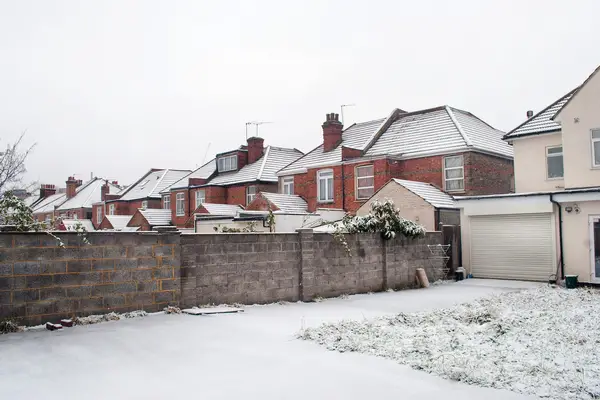
The cheapest option to heat a house without central heating is either ground source heating or air source heating systems. If you have the garden space. Plus if you can afford the cost of the investment in a ground source heating, the ongoing cost is lower than gas central heating.
Plus you can get a grant to install ground source heat pumps too. This will help offset the large upfront investment, which is much higher a than central heating.
If you don’t have the space for a ground source heat pump then the best alternative is an air source heat pump instead.
How easy is it selling a house without central heating?
It will be harder to sell a house without central heating, as more people prefer central heating to all other forms of home heating. You will be able to sell a house without central heating, but the price will need to reflect this fact when compared to similar properties nearby.
If you don’t have central heating when you come to sell, you will be limiting your market to those who either don’t like central heating or those who are happy to install a system themselves. Any time when you limit your market, this always reduces the price of a property.
If you want to sell your house quickly, it will be better to have central heating.
To conclude with should you buy a house with no central heating
On the assumption the house has some form of heating, and assuming the mortgage company will lend, it’s okay to buy a house with no central heating. However, whether or not you need to install central heating is down to personal preference.
For example, I feel the cold more than my wife. I think this is since going through cancer as it seems to have affected me in this way. But my wife is going through the menopause and has hot flushes.
This can cause conflict in terms of what heat is comfortable for us. For example, I prefer the heating up. But my wife may want the windows open in the bedroom to cool down. So it all boils down to what you prefer.
But always bear in mind what central heating systems add to the value of your house when you come to sell.
Please don’t forget to read this before you leave…
Please don’t forget to also read this article to discover how you could save £71,475 on your next mortgage if you sell your house and rent before buying again. As I said earlier, even I was amazed when I did the calculations!
I hope you’ve enjoyed this article about should you buy a house with no central heating
If you’ve enjoyed this article about should you buy a house with no central heating please share it on your favourite social media site.
Also, if you have any questions, please feel free to comment below too. Please also share any of your experiences with properties you’ve bought. Alternatively, if you need more help, please feel free to contact us on our contact us page here. Or join the discussion and ask your question in the property forum.

